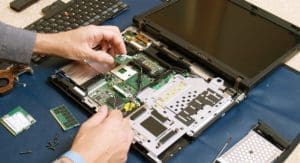Cloning a Hard Drive: The Smart Choice for Data Backup and Recovery
Data storage is an essential aspect of our digital lives, and safeguarding our valuable information is of utmost importance. Whether it’s personal files, business data, or treasured memories, no one wants to experience the heartache of losing it all due to hardware failure or accidents. While traditional data backups have served us well for decades, cloning a hard drive has emerged as a superior method, offering efficiency, convenience, and seamless data recovery. In this article, we will explore the workings of hard drive cloning and why it outshines traditional backups.
- Understanding Hard Drive Cloning
Hard drive cloning involves creating an exact replica of an existing hard drive onto another drive, often referred to as the destination drive. This process copies not just individual files, but the entire system, including the operating system, applications, settings, and data. Cloning preserves the drive’s structure and partitions, ensuring an identical copy that can be used as a bootable replacement for the original drive.
The process of hard drive cloning typically involves using specialized software, which reads the source drive’s data and then writes it onto the destination drive sector by sector. This level of precision ensures that every bit of information is accurately transferred, leaving no room for discrepancies or data loss.
- Advantages of Cloning a Hard Drive
- Time Efficiency: Cloning a hard drive is significantly faster than traditional backup methods. While creating regular backups can be time-consuming, especially when dealing with large amounts of data, cloning can be completed in a fraction of the time. This time efficiency is particularly valuable for businesses where minimizing downtime is crucial.
- Complete Data Replication: Unlike conventional backups, which might require the installation of the operating system and applications before restoring data, a cloned hard drive is an exact replica of the original. This means that once the cloning process is complete, you can simply swap the drives, and your system will be up and running with all data and settings intact.
- Seamless Transition: When a hard drive fails or becomes corrupt, replacing it with a cloned drive ensures a seamless transition. There’s no need to go through the hassle of reinstalling software, configuring settings, or recovering files. The cloned drive can act as a plug-and-play solution, saving valuable time and reducing potential frustration.
- Disaster Recovery: Cloning is an excellent disaster recovery strategy. In case of sudden drive failure, you can quickly swap out the damaged drive with the cloned drive, getting back to work or play without missing a beat.
- Data Security: Cloning a hard drive is a secure process as it ensures that sensitive data and configurations remain within the organization. Traditional backups, particularly those stored on external servers, may expose data to potential security risks and breaches.
- Cloning vs. Traditional Backup
While traditional backup methods like cloud-based backups or external hard drives still have their place, they lack some of the crucial advantages that hard drive cloning offers.
- Data Integrity: With cloning, you can be confident that your entire system is backed up, ensuring no data or settings are overlooked. Traditional backups might miss some critical system files or configurations.
- Recovery Speed: When it comes to data recovery, time is of the essence. Hard drive cloning offers a much quicker recovery process compared to traditional backups, which could require considerable time for data retrieval and system restoration.
- No Reliance on Internet Connectivity: Traditional backups, especially those stored in the cloud, rely on a stable internet connection. In case of network outages or limited internet access, this approach can become challenging. Cloning a hard drive is a self-contained solution, eliminating the need for internet connectivity during the restoration process.
Conclusion
In the ever-evolving world of data storage and protection, hard drive cloning emerges as a compelling choice for businesses and individuals alike. Its efficiency, speed, and seamless recovery process set it apart from traditional backup methods. By investing in a reliable hard drive cloning solution, you can ensure the safety and accessibility of your precious data, making it an essential component of your data management strategy. Remember, the key to safeguarding your digital assets lies in proactive measures, and hard drive cloning is an outstanding step towards data resilience.
Author Bio:
Jonathan Snide is a seasoned IT professional with a passion for cybersecurity. With several years of experience in the industry and a Bachelor of Science degree in Information Systems Technology, Jonathan has developed a deep understanding of the intricacies of keeping data safe in the digital world.

